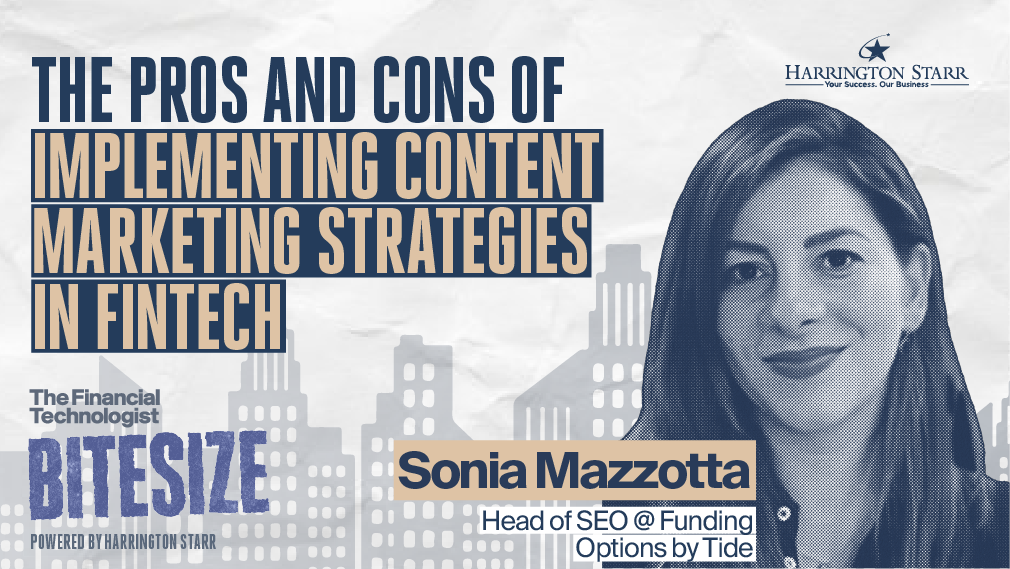
In the FinTech industry, trust is paramount. Consumers need to feel confident that their financial information is secure and that the services they use are reliable. Content marketing can help build this trust by providing informative and transparent content. For example, educational blog posts on topics like "How to Protect Your Financial Data Online" or "Understanding Blockchain Technology" can position a fintech company as a knowledgeable and trustworthy authority in the field.
All this increases brand visibility. By consistently publishing high-quality content, fintech companies can ensure that their brand stays top-of-mind for potential customers. This can be particularly effective when leveraging SEO strategies to ensure content ranks highly on search engines. For instance, a series of well-researched articles on "The Future of Digital Banking" can attract organic traffic and introduce new audiences to the brand.
This is a perfect opportunity to educate the users on complex concepts that can be intimidating to the average consumer. Content marketing provides an avenue to break down these concepts into digestible, easy-to-understand information. Educational content like explainer videos, FAQs, and how-to guides can demystify fintech products and services, making them more accessible and appealing to a broader audience but also it can foster a deeper connection with the audience. For example, webinars, live Q&A sessions, and interactive infographics can encourage active participation and dialogue between the company and its customers. This not only enhances customer experience but also provides valuable insights into customer needs and preferences.
Content marketing can be a powerful tool for generating leads and driving conversions. By offering valuable content, fintech companies can attract potential customers and nurture them through the sales funnel. Downloadable assets like eBooks, whitepapers, and case studies can be gated behind lead capture forms, allowing companies to collect contact information and follow up with targeted marketing efforts.
This is important because compared to traditional advertising methods, content marketing can be more cost-effective. Once created, high-quality content can continue to generate traffic and leads over time without ongoing investment. This makes it an attractive option for fintech startups and smaller companies with limited marketing budgets.
However, creating high-quality content takes time and effort. Researching topics, writing articles, producing videos, and designing infographics require significant resources. For fintech companies, especially startups, this can be a daunting task. Consistently producing content that is both valuable and engaging can stretch a company's resources thin.
One of the biggest challenges with content marketing is measuring its return on investment (ROI). Unlike direct advertising, where results can be immediately quantified, the impact of content marketing is often more gradual and harder to track. It can be difficult to attribute specific sales or leads directly to a piece of content, making it challenging to justify the investment to stakeholders.
Another challenge is that staying ahead of content trends can be a full-time job. Fintech companies need to continually adapt their content strategies to stay relevant. This might involve adopting new content formats, exploring emerging platforms, or responding to changes in consumer behaviour. Failing to keep up with these trends can result in content that feels outdated or out of touch.
As more brands recognise the value of content marketing, the space is becoming increasingly saturated. Standing out amidst a sea of content can be challenging. Companies need to find unique angles and offer truly valuable insights to capture and retain their audience's attention. This often requires creativity and innovation, which can be demanding and resource-intensive.
The fintech industry is heavily regulated, and this extends to content marketing. Companies need to ensure that their content complies with all relevant regulations and guidelines. This can be particularly challenging when discussing financial products or giving advice. Any misstep can result in legal issues or damage to the company's reputation. Working closely with legal teams to review content can slow down the production process and add additional complexity.
Content marketing offers a myriad of benefits for fintech companies, from building trust and enhancing brand awareness to driving customer engagement and generating leads. However, it also presents challenges, including the need for significant resources, measuring ROI, staying current with trends, and ensuring compliance. By developing a clear strategy, focusing on quality, leveraging data, staying adaptable, collaborating with experts, and ensuring compliance, fintech companies can effectively navigate the pros and cons of content marketing. In doing so, they can use the power of content to achieve their business objectives and build lasting relationships with their audience.
By Sonia Mazzotta, Head of SEO at Funding Options by Tide






